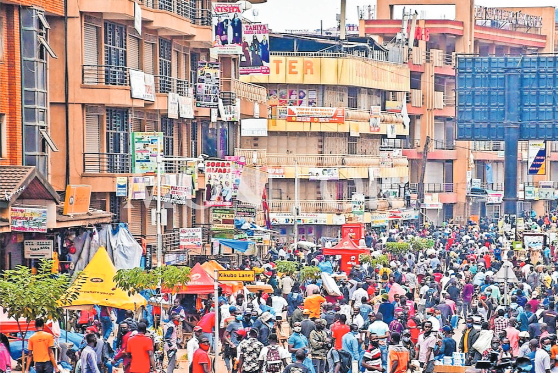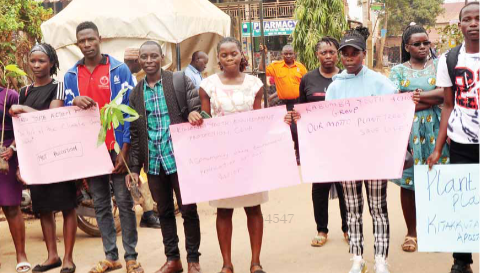Youth participation in climate change mitigation is important

What you need to know:
Climate change is not an abstract concept in Uganda it is an everyday reality.
Participating in the Local Conference of Youth (LCOY) ahead of COP29 was a transformative experience that has left a lasting impact on my journey as a climate advocate.
Reflecting on the event, I find myself asking: What does LCOY truly mean to me not just as a youth, but as a member of civil society and as an active participant in the climate space?
Climate change is not an abstract concept in Uganda it is an everyday reality.
We see it in the floods that ravage communities after heavy rains, destroying homes, farms, and livelihoods.
We experience it in the prolonged dry spells that lead to food shortages and hunger, forcing many people especially in rural areas into desperate situations.
These patterns of unpredictable and extreme weather are more than just statistics; they are the lived experiences of many Ugandans, for example the current situation within Kasese.
However, it should be noted that the Ministry of Water and Environment, through the Department of Climate Change, has made important strides by committing to frameworks like the Nationally Determined Contributions (NDCs), the National Adaptation Plan (NAP).
These policies demonstrate Uganda’s efforts to align with global commitments to mitigate and adapt to climate change.
However, what became abundantly clear during LCOY Uganda was that many youth, despite being directly affected by these climate challenges, have been systematically excluded from these decision-making processes.
This exclusion is frustrating. Young people bring new ideas, energy, and a willingness to tackle challenges head-on, yet they are often overlooked when it comes to formulating policies that directly impact their lives and future.
This gap in participation is what makes the Local Conference of Youth (LCOY) so significant it provides the missing link by ensuring that young voices are heard and valued.
For me, LCOY Uganda symbolises empowerment, hope, and meaningful engagement. It was not just an event, it was a space where I felt my voice mattered.
Through LCOY, I experienced firsthand how young people can influence both local and global climate conversations. With over 60 youth participants coming together, sharing experiences, and brainstorming solutions, the conference felt like a movement one rooted in collective action. One of the most impactful aspects of LCOY Uganda was the opportunity to contribute to the Youth Statement, which will be shared with YOUNGO, the official youth constituency of the UNFCCC.
This gave me a sense that my input would reach beyond the borders of Uganda to influence global policy discussions at COP29. The process of crafting this statement was both inspiring and sobering, it showed me that the youth are ready to lead, but they need genuine spaces and opportunities to do so.
For me, LCOY Uganda is more than a conference it is a call to action. It reminds us that climate action is not just a task for tomorrow’s leaders; it is a responsibility for today’s youth.
It is a space where I saw that youth can lead, not by waiting for permission but by stepping up and taking ownership of the solutions.
The experience reignited my belief that the climate movement must be inclusive. It cannot afford to leave behind the people most affected whether they are rural farmers struggling with drought, young entrepreneurs developing eco-friendly innovations, or waste pickers working to keep cities clean.
LCOY gave me hope—hope that change is possible if young people are given the space to participate and lead.
But it also challenged me to do more. Being part of LCOY means becoming an active agent of change, ensuring that every step forward brings us closer to a future where the voices of the youth are not just heard but respected, valued, and acted upon.
Jemimah Babirye Kasibbo, Partnership and Engagement Officer. Green Africa Youth Organisation (Uganda)




